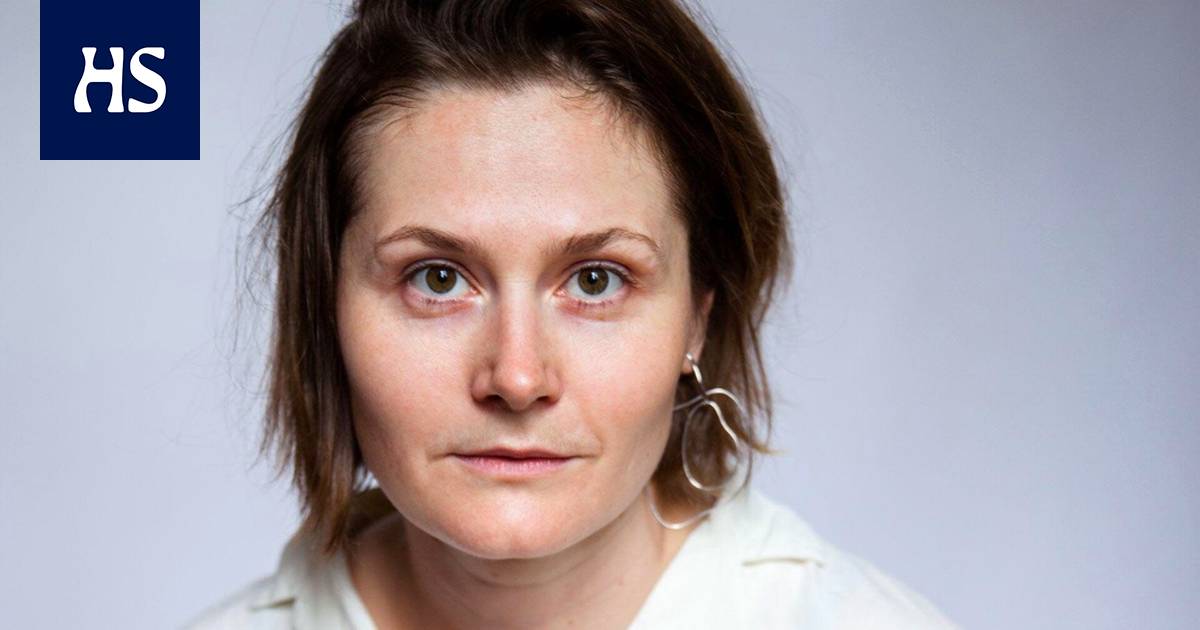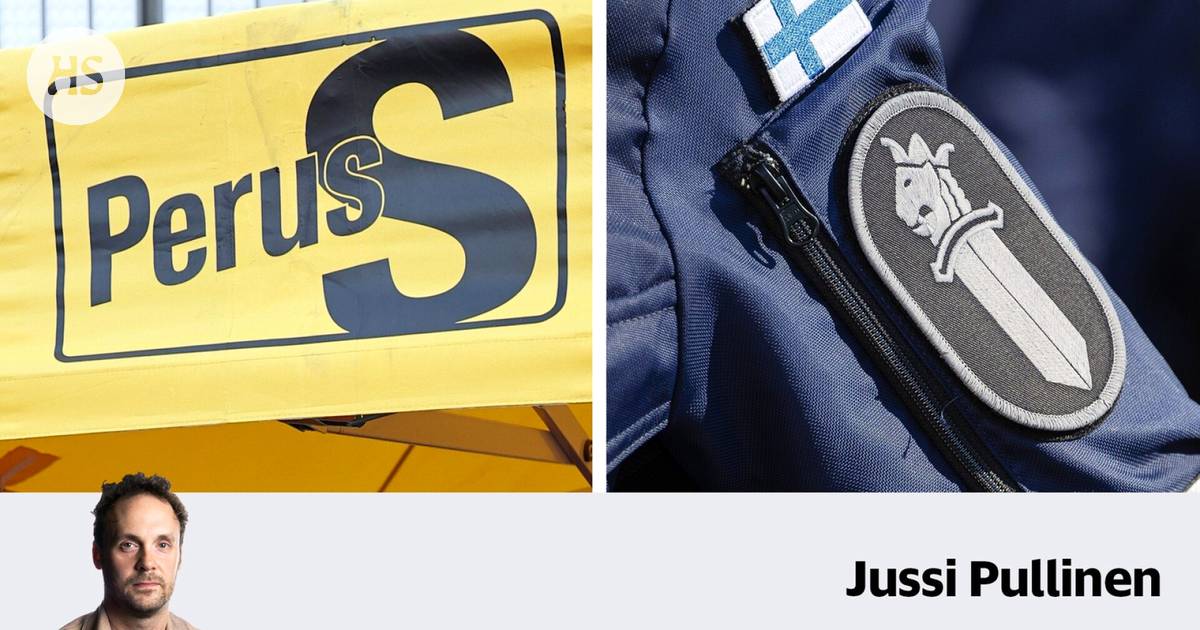Oksana Vasjakina’s first novel is not a sign of Westernity but of universality and timelessness.
Novel
Oksana Vasjakina: Wound (Rana). Finnish Riku Toivola. Big Dipper. 254 pp.
Last Christmas below Oksana Vasyakina32, was told that his book is ordered to be destroyed from Moscow libraries.
The reason: the “gay propaganda law” that came into force.
An autobiographical novel that was originally published in Moscow in 2021 and has just been translated into Finnish Wound describes the necessity of self-discovery and self-expression. It is doubly difficult when you live in a society that classifies sexual minorities as a threat: Western pollution.
If art is assigned the task of harmonizing the population, such unnatural things as, for example, the so-called construction novel, will arise Stalin’s, the “engineer of human minds”, time in the Soviet Union. The individual has very little meaning, for example Ilja Ehrenburgin in a novel describing a blast furnace site Second day (1934, Finnish 1978), when brave heroes march the state forward on the path of development.
Shouldn’t something like that, programmatic optimism operating on the terms of orthodox and strong people, be found in the eastern neighbor again?
Vasyakina creates literature that aims to show that all people somehow belong to a minority and most like many. This does not make him Western, but universal and timeless.
Vasyakina grew up in a poor divorced family in Siberia, where his alcoholic mother worked in a sawmill. The novel is based on his life. Vasyakina, who studied at the Moscow Institute of Literature, says so herself In the wound, that narrative still shines through its absence in his novel. That’s all there is to it In the wound is that the mother dies of breast cancer, is cremated and the only descendant, the daughter, is left to take the urn to remote Ust-Ilimsk.
Instead of a novel with a plot, we get essay-like essays of thoughts about the author’s own life, family, literature and art. A few poems too. It was as a poet that Vasjakina began her career.
So Wound can well be characterized as an autofictional species hybrid, for which nothing experienced, enjoyed or feared is foreign, let alone insignificant.
“There are many taboos and shame associated with a woman’s body. Literature is a sacred, sacral thing in Russia, where I come with vaginas, lesbians and menstruation”, Vasyakina characterized the ground of her work At the Krasnoyarsk book fair in Siberia in the fall of 2021. Russian literature is not accustomed to such physical description.
At that time, a large-scale war and the cleansing of the home front from even the last false positions were still ahead.
Silencing arouse interest. What is so dangerous about this Vasyakina?
That she writes about her lesbianism? As if an innate human quality could catch the flu.
Julia Kristeva, by Hélène Cixous, Luce Irigaray and Vasjakina, who breathes the feminist philosophy of others, calls her text “women’s writing” in her work.
The work’s identity political starting point draws from the question, who am I and leads to another: under what conditions can I be who I am?
From the novel Wound it works because it opens without a scientific toolkit as well as knowledge of Russian culture.
Or rather, it leads well enough to both. The author’s own soul and body form the stage on which philosophers’ theories and the burdens of cultural heritage come true. As Vasjakina instructs her Finnish readers in her foreword:
“This book is about goodbyes and forgiveness. The book is about Russian women. It’s about the body, writing and death.”
body, within the themes of writing and death is the search for an approving gaze, soon also a desiring gaze.
So Wound can be characterized as a romance novel. And like most notable works in the field, without exception, into an unhappy love novel, i.e. a tragedy.
Mother Russia does not love her daughter. Even better than my own mother, in whose eyes the author mostly remembers only difference and distance.
“She chose men, but not me.”
Men who drank and hit. Except for that very last one.
Oksana Vasjakina reads her work. Screenshot from Youtube.
Even in death the daughter is not able to make the mother gentle, let alone indifferent:
“Nothing will make him become empty. He just lies and lies inside me in his glowing coffin. As if he were an organ necessary for life that cannot be detached from me. That’s what he seems to be. My incurable wound.”
“The wound didn’t come from the fact that he didn’t stay alive, but from the fact that he existed at all.”
For Vasjakina, a woman is, above all else, a space that marks the one who once lived in her circle forever. Just like an artist Louise Bourgeois in the installation kit Cages:
“The female spider weaves a barely visible, sticky, suffocating thread, the web is in this context a metaphor for toxic close human relationships and the hyper-control hidden behind care and guardianship, but also for anger.”
Ungendered the best, one might say, for example, the director Ingmar Bergmanwhose creation stemmed largely from his irreconcilable hatred towards his father.
Or for example Franz Kafkawhich its text A letter to father based on the fact that he lived the rest of his life in the memory of his tyrannical monster breeder, then did the boy’s feeling completely justice To Hermann Kafka or not.
But even male writers like Bergman and Kafka could not match Vasyakina’s physicality. A wound you can see a self-portrait narrator finding a harden in his navel: a fragment of the umbilical cord that gave life in the womb, which never fell out. There can hardly be a stronger manifestation of connection and the permanence of an emotional storm.
Riutua’s mother, on the other hand, suspects that the cancer started from a drop of milk left on her breast during breastfeeding.
Yes, mother is In the wound sometimes alive and sometimes dead but always present.
Oksana Vasjakina compares the structure of her work to a stone hitting the surface of the water, which pushes small waves around it in different directions. One memory always stirs up new circles.
The author strives for them as notes as best he can, here and there, sometimes bravely knowing where I’m going astray and exhausting the reader a little.
However, one should not think that he makes a person the mere sum of his wounds. The work, which mostly examines the mother relationship, is dedicated to one of the characters in the latter half, my own wife.
This one A book that is beautiful in its mixed content has a place in all libraries. In addition to Putinist Moscow, it would certainly also be frowned upon in, for example, the Bible zone of the United States.
Finnish translator To Riku Toivola Wound is not only the first big job but also a strong proof of competence.
Finnish translator Riku Toivola has translated Oksana Vasjakir’s novel. There is a Börje dog in the lap.
Suomentaja commented: The ban does not affect writing
in St. Petersburg a Finnish translator who lived between 2003 and 2013 Riku Toivola reminds that in Russia there are always a lot of different ukases, and that it is appropriate to approach them with a certain kind of reservation.
“Also to the fact that a list of books to be removed appeared in Moscow’s libraries,” he says.
Oksana Vasyakina is the only living writer living in Russia in the list of 34 names.
“However, the listing does not mean that it is not Wound would get nothing.”
Toivola has been preparing “for how many years” a doctoral thesis on Russian literature and since the beginning of this year has been a substitute teacher of translation at the University of Helsinki.
He has been in regular contact with Vasjakina since he started the translation work.
“In our communications, Oksana has taken absolutely no position on removing it from libraries,” says Toivola.
“He still lives with his journalist wife in Russia a lot as a security guard, as he has jokingly joked. He has stated that his mother tongue is so important to him that it seems impossible to go anywhere.”
Vasjakina teaches writing courses and has quietly continued her writing work.
Vasjakina first self-titled work Women’s prose was published in Russia in 2016. It is a book of poems.
“For him, one of the most important technical issues in creative work has been the difference between poetry and prose,” says Toivola. “The difference is characterized by his metaphor: drinking beer is like writing prose, while poems are vodka shots.”
According to Toivola, the themes and way of writing of Vasjakina, who emerged from activist circles, are not at all related to mainstream literature in Russia – that is, the kind that is usually found on bookstore shelves.
“On the other hand, he has studied at the Gorky Institute of Literature, so you can say that he is somewhere on the border between institutional literature and the underground.”
Toivola estimates, that the group of young artists and intellectuals in Russia knows Vasyakina well. And that now even a slightly larger audience is starting to feel it.
“Publications like Oksana’s works are usually sold by private, slightly more specialized bookstores. There are at least three of them in Moscow.”
Like Falanster main street on Tverskaya.
“Academic and literary-oriented youth go there. Discussion sessions are also organized.”
Or at least it’s organized.
Oksana Vasyakina continues his own creative work in Moscow.
“Oksana just published a picture of the cover of her third novel on her Telegram channel,” says Toivola. “When I started translating Wound and I contacted him, he was making another part of it, but apparently a trilogy has been born.”
Another part, Steppes, appeared in Russia last spring. It tells about the death of the father. In the third part, Roseit’s the aunt’s death.
“In these novels, he is burying the entire old generation that grew up in the Soviet Union,” Toivola sums up.
Finnish translation is A wound first translation. Soon after that, according to Toivola’s calculations, a dozen more will appear, in addition to Europe, to the United States and Japan.
“The purpose now is to write a quick statement From the steppe. If only the publisher would be interested.”
#Book #Review #Haava #landmark #work #contemporary #Russian #literature #ordered #destroyed #Moscow #luckily #read #Finland

/s3/static.nrc.nl/images/gn4/stripped/data114857203-c35b19.jpg)






